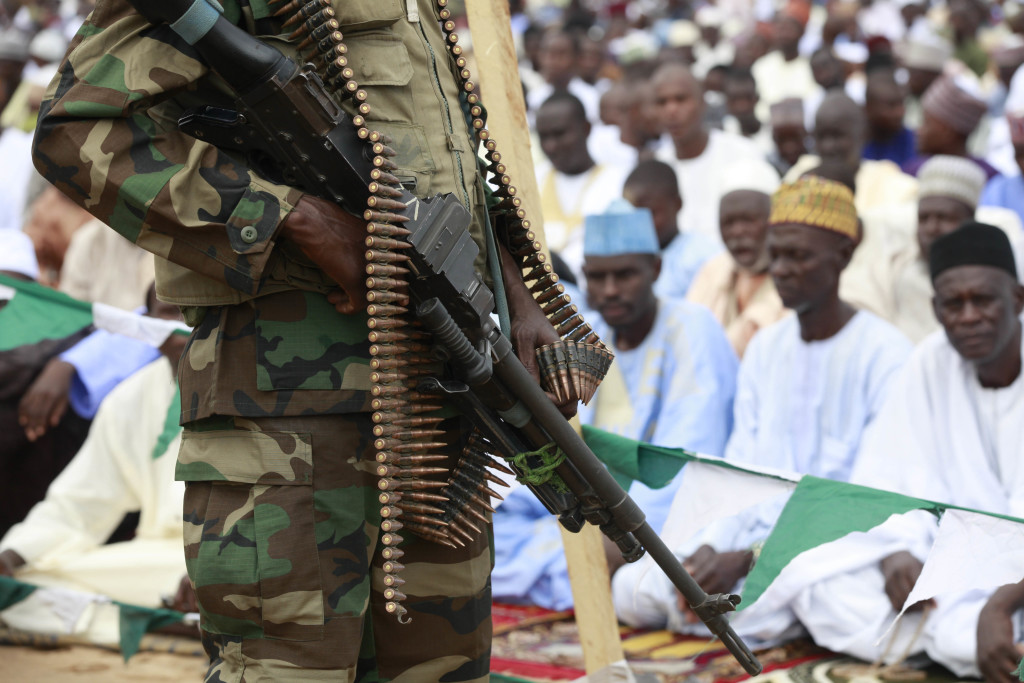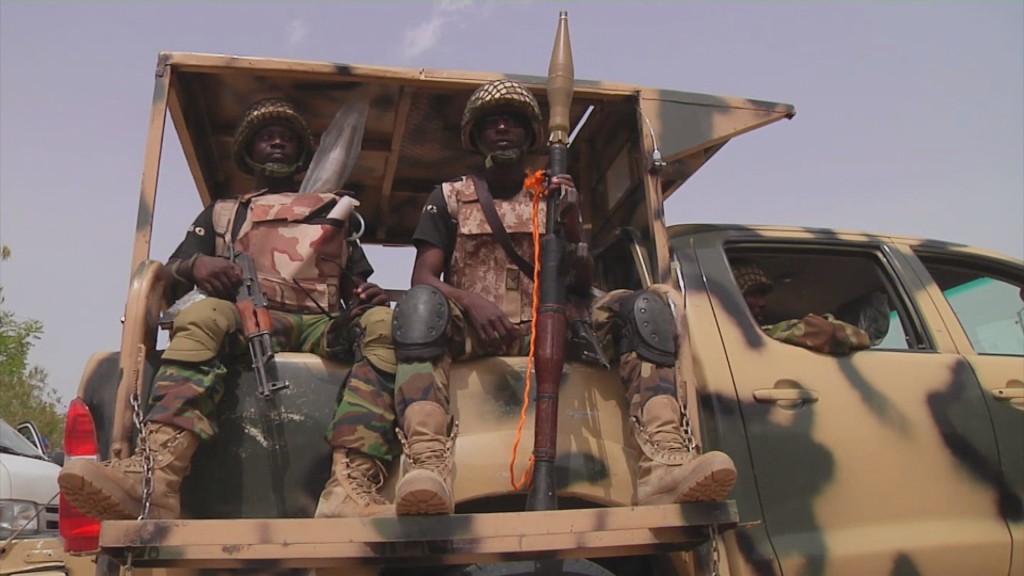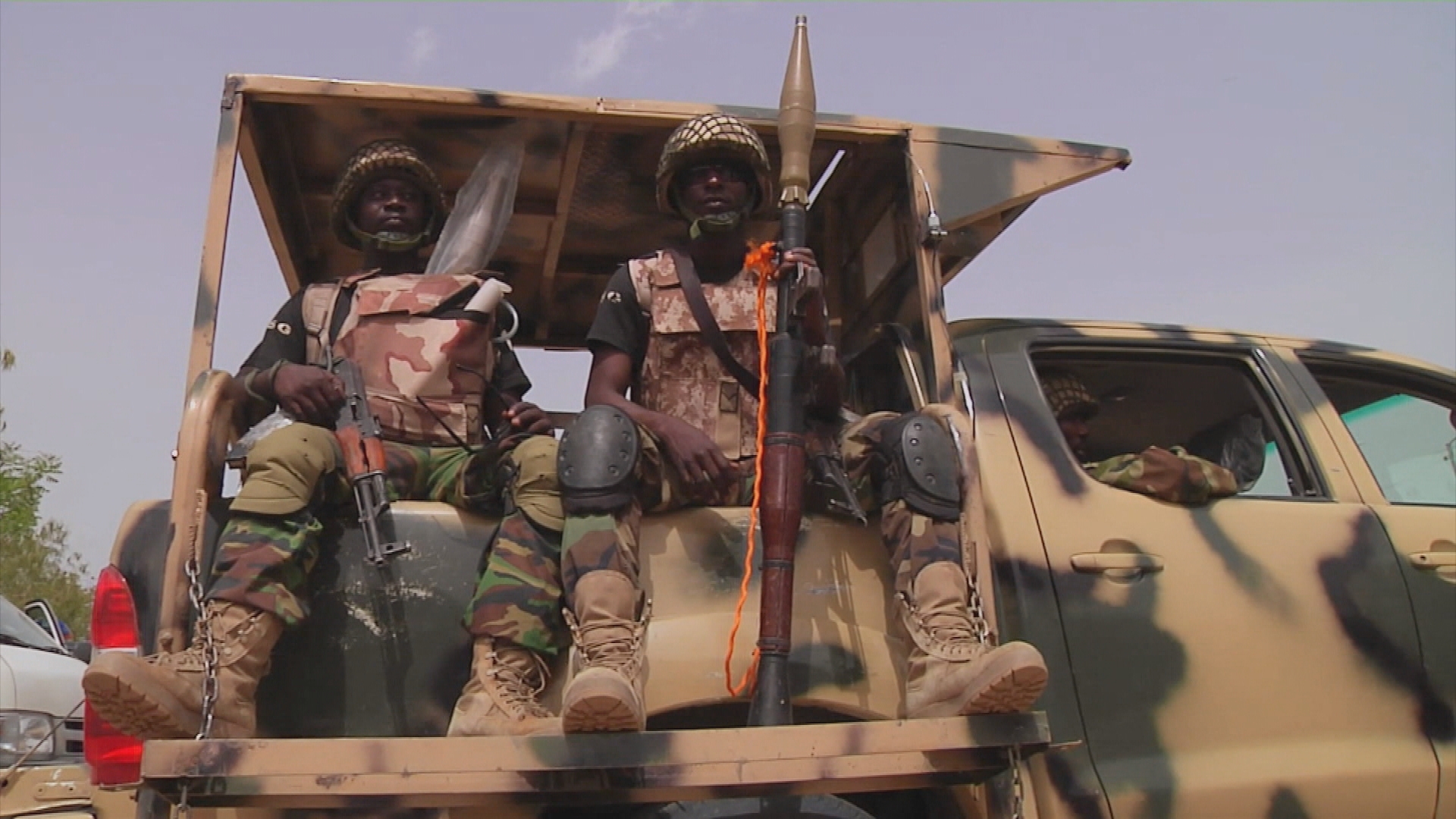Nigerian Military Has Committed “War Crimes” in Fight Against Boko Haram, says Amnesty Report

June 3, 2015
Share
The Nigerian military has starved, suffocated, tortured to death or otherwise executed more than 8,000 people in its quest to eradicate the terrorist group Boko Haram, according to a new report by Amnesty International.
The report follows the 2014 FRONTLINE investigation, Hunting Boko Haram, which gathered cell phone videos and witness testimony of atrocities allegedly committed by Nigerian security forces, including the military and civilian militias operating with the blessing of the government.
Boko Haram has waged war in Nigeria since about 2009, blowing up buses and churches, massacring civilians and abducting schoolchildren and others. In the first three months of this year alone, the group killed more than 1,000 people.
The government has fought back, but not without controversy. In 2012, it declared a state of emergency and began a massive crackdown in the northeast of Nigeria, where Boko Haram is entrenched. There, FRONTLINE found, security forces have indiscriminately rounded up young men and boys to be beaten, tortured and killed. After the documentary aired, the Nigerian government said it would launch an “intensive investigation” into those allegations.
But to date, it doesn’t appear that anyone has been held accountable. According to Amnesty International, the atrocities have only continued.
The Amnesty report released on Wednesday draws on military documents, videos and photos, and interviews conducted with more than 400 people who helped to show the extent of what the report’s authors labeled as war crimes, and possible crimes against humanity, committed by the military against its people.
It found that the military — sometimes in collaboration with the civilian task force members — has executed at least 1,200 men and boys. At times, hundreds were killed in a single day. Sometimes the bodies were dumped on the outskirts of villages, near their homes. Others were never returned.
More than 7,000 men and boys have died in detention, according to the report. Starvation and thirst were common causes, but disease also spread in overcrowded cells among sick and tortured prisoners who were left without medical aid. The military also sprayed fumigation chemicals into the unventilated cells. Their deaths were rarely recorded or investigated.
Many have also been tortured. Amnesty spoke to former detainees who described beatings, rapes, and nails and teeth pulled out.
The military’s investigations of those it has detained appears “completely random and arbitrary,” the report said. Some people are released because their families paid bribes. Most remain in indefinite detention without charge or trial. Since December 2010, only 24 court cases have concluded, Amnesty found.
Two reports conducted by the military — one in December 2013 and another in January 2014 — found that several hundred people in its custody should be released, according to Amnesty. But military sources said that never happened.
The Amnesty report listed five senior military commanders who it said should be investigated for the war crimes of murder, disappearances, and torture; and four more top military officials for failing to prevent war crimes committed by their subordinates.
“The senior military leadership was fully informed (by field commanders, investigative commissions, and external sources) of the nature and scale of the crimes being committed and failed to take any meaningful measures to stop the violations,” Amnesty said.
In a scathing letter released in response to the report, Maj. Gen. Chris Olukolade, a defense spokesman, said that naming military officials was tantamount to “blackmail,” that the report’s statistics were “spurious or manipulated” and the allegations rooted in “extreme bias.”
“Each of the previous allegations had been thoroughly responded to and cleared in the public and officially,” he said.
Amnesty said that the Nigerian military had “repeatedly” said it would investigate its allegations, but had provided no further details. In a few cases, the military has publicly announced internal investigations, but again, released no information about them.
“Amnesty International is not aware of any military personnel being investigated or suspended pending investigation,” the report said.
Related Film: Hunting Boko Haram
FRONTLINE investigates Nigeria’s efforts to “Bring Back Our Girls” and fight Boko Haram.

Related Documentaries
Latest Documentaries
Related Stories
Related Stories
Explore
Policies
Teacher Center
Funding for FRONTLINE is provided through the support of PBS viewers and by the Corporation for Public Broadcasting, with major support from Ford Foundation. Additional funding is provided the Abrams Foundation, Park Foundation, John D. and Catherine T. MacArthur Foundation, Heising-Simons Foundation, and the FRONTLINE Trust, with major support from Jon and Jo Ann Hagler on behalf of the Jon L. Hagler Foundation, and additional support from Koo and Patricia Yuen. FRONTLINE is a registered trademark of WGBH Educational Foundation. Web Site Copyright ©1995-2025 WGBH Educational Foundation. PBS is a 501(c)(3) not-for-profit organization.





















